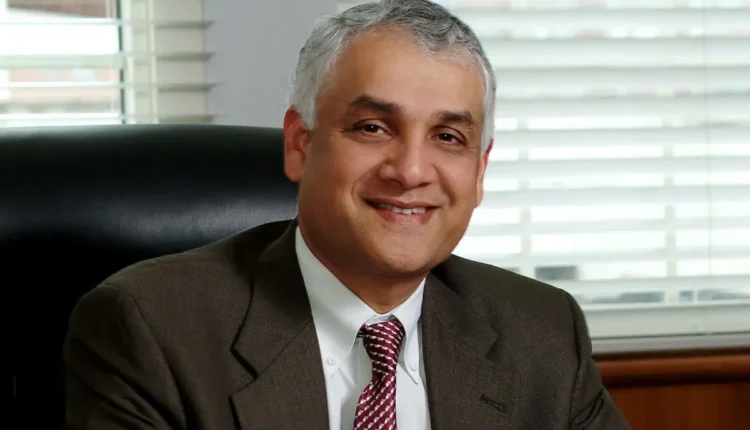In the ever-evolving landscape of engineering and academia, Pramod Khargonekar stands as a beacon of inspiration and innovation. As the Vice Chancellor for Research and a Distinguished Professor of Electrical Engineering and Computer Science at the University of California, Irvine, his journey is a testament to unwavering dedication and a passion for advancing knowledge.
Pramod Khargonekar’s Early Years
Born in Indore, Madhya Pradesh, India, Dr. Khargonekar embarked on his academic journey at the prestigious Indian Institutes of Technology, Bombay, where he earned his bachelor’s degree.
His thirst for knowledge and the pursuit of excellence led him to Gainesville, Florida, in the late 1970s, where he studied under the guidance of Rudolf Kálmán.
At the University of Florida, Dr. Khargonekar earned a master’s degree in mathematics in 1980 and a doctorate in electrical engineering in 1981. His academic prowess propelled him to join the University of Florida faculty as an assistant professor of electrical engineering in the same year.
Academic Odyssey: From Florida to Michigan
In 1984, Dr. Khargonekar took a significant step in his academic journey by moving to the University of Minnesota, initially as an Associate Professor and later attaining the rank of full Professor in 1988.
The year 1989 saw him joining the University of Michigan faculty, where he held the position of Chair of the Department of Electrical Engineering and Computer Science in 1997. In 2000, he further solidified his legacy by becoming the Claude E. Shannon Professor of Engineering Science.
The year 2001 marked a homecoming for Dr. Khargonekar as he returned to the University of Florida to assume the role of Dean of the College of Engineering and Eckis Professor of Electrical and Computer Engineering.
During his tenure as Dean from 2001 to 2009, he spearheaded transformative initiatives that significantly elevated the College’s academic standing. Notably, the number of Ph.D.s awarded during his final year witnessed a nearly 100 percent increase, reaching a remarkable 189.
Pioneer in Control Systems Engineering
Dr. Khargonekar’s research journey has been centered around systems and control theory, with a particular emphasis on applications. Control systems play a crucial role in various aspects of modern technological society, from airplanes and automobiles to manufacturing tools and biomedical devices. His early work delved into advanced algebra methods for the analysis of system mathematical models.
Later in his career, Dr. Pramod Khargonekar made substantial contributions to the field of robust control, notably in the development of state space H-infinity control theory.
This achievement marked a significant milestone in the realm of control systems engineering. His expertise also extended to digital control, system identification, and digital signal processing.
One of his pioneering contributions involved applying modern control methods to semiconductor chip manufacturing processes, particularly in plasma processes for etching silicon.
His innovative approaches found applications in diverse areas, including color xerography and the control of reconfigurable manufacturing systems.
In recent years, Dr. Pramod Khargonekar has directed his focus toward addressing the challenges of integrating wind and solar electricity into the power grid. This endeavor requires navigating the inherent variability, unpredictability, and uncontrollability of these energy sources, showcasing his commitment to sustainable solutions.
A Visionary Educator
Throughout his illustrious career, Dr. Pramod Khargonekar has demonstrated a profound commitment to elevating the educational experience for students at both the undergraduate and graduate levels.
As the Dean of the University of Florida College of Engineering, he played a pivotal role in achieving national recognition for the institution, ranking in the top 10 for the number of Ph.D.s graduated.
His dedication to promoting education and scientific careers is evident in initiatives aimed at encouraging women and underrepresented students and faculty in STEM fields.
The revision of the undergraduate curriculum and the establishment of a minority student mentoring program at the University of Florida are testaments to his commitment to fostering inclusivity and success.
Accolades and Recognition
Dr. Pramod Khargonekar’s contributions to the field have not gone unnoticed. He has received numerous honors and awards, solidifying his status as a trailblazer in control systems engineering.
Among these honors are the IEEE Control Systems Award in 2018 and his election as a fellow of the American Association for the Advancement of Science in the same year.
His influence extends to the academic realm, with an impressive ISI Highly Cited Researchers status and a Google Scholar h-index of 60 and g-index of 130. His research paper, “State-space solutions to standard H/sub 2/and H/sub infinity/control problems,” has been cited a remarkable 6,895 times.
Dr. Pramod Khargonekar’s accolades also include the NSF Presidential Young Investigator Award in 1985, the IEEE W.R.G. Baker Prize Paper Award in 1991, and the Distinguished Alumnus Award from the Indian Institute of Technology, Bombay, in 1997.
A Legacy of Service
Beyond his academic and research endeavors, Dr. Pramod Khargonekar has dedicated himself to service. He has served as Associate Editor for six esteemed publications, contributing to the advancement of knowledge in the fields of control systems and optimization.
His role as the Assistant Director for Engineering at the National Science Foundation (2013-2016) and Deputy Director for Technology at the Advanced Research Projects Agency – Energy (ARPA–E, 2012–13) underscores his commitment to shaping national policies and initiatives in the realms of engineering and technology.
In his role as an advocate for STEM education, Dr. Pramod Khargonekar has consistently worked towards addressing issues at all educational levels, with a specific focus on improving opportunities and outcomes for women and underrepresented minorities in engineering.
Also Read: Renu Khator: Pioneering Leadership at the University of Houston

